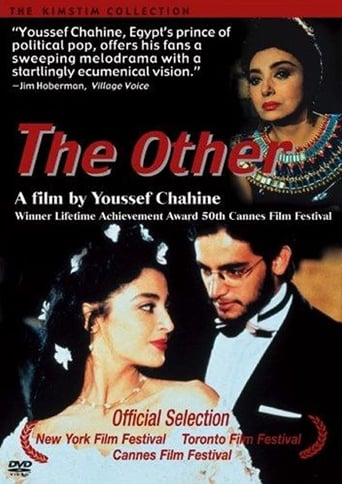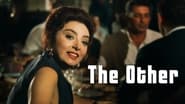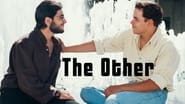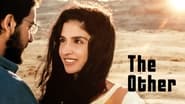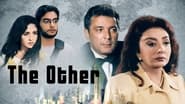mmolabi
This movie is one of the best romantic dramas and examples of political realism in the Middle East region. It discusses what is the meaning of terrorism and who is a terrorist, and who is the real terrorist. The movie shows how power can destroy the most beautiful things in the world. The movie is extremely intelligent and it has many interesting ideas. Every time one watches the movie, it is as if you are seeing it for the first time because you see additional layers of meaning in the movie. The movie is a love story between Adam, the son of an American woman and an Egyptian man (who are married only for business reasons without love) and Hanan, a female journalist from a poor family. Adam studied human rights and terrorism. Hanan's brother is a member of a terrorist group. The movie explores how their life develops and grows after their marriage. The American woman becomes jealous on her son and doesn't want someone to take her son and wants to destroy their love story. It's a very touching love story and expresses much about the situation faced by poor Egyptians and gives the viewer lots of questions as to how people become terrorist and what leads a young guy to pursue this path.
mamlukman
I watched this as someone who has lived in Egypt and knows enough Arabic to follow the dialog with the help of subtitles. I saw a movie with Hanan Turk last year, and wanted to see more of her. That movie (Dunya)was a lot better than this one. Maybe Chahine (73 when he made this!)is over the hill. At least it had a definite ending, and I suppose the repeated "law of the jungle" warning was the message, but it was a mess.First off, there's too much going on: we are introduced to two young men, one of whom immediately leaves the movie to go back to Algeria and is not seen again except for a brief "fantasy" sequence of his death at the hands of fundamentalists. Then there's a brief sequence with Edward Said--setting up the theme of "Can't we all get along" (I guess).Then we have the love at first sight between Hanane and Adam--I can certainly see Adam's attraction to Hanan (why use her real name, by the way?), but total love at a glance was a bit much. Then the mother-son thing, then the corruption thing, then...it just goes on and on adding elements without developing any of them. Adam knows full well Hanane is a journalist trying to interview a guest at a dinner party, but he invites her to the table and is shocked--shocked!--when she writes what she hears and sees. The mother-son thing is a bit gross and borders on child abuse--I would say goes over the border. Why make Adam's family Christian? Just to knock Christians? A Christian Arab-American conspiracy? Please. The mother is a drunk, a border-line child abuser, hates poor people (esp. Egyptians), and is thoroughly unpleasant. Two questions about all that: First, if Adam is a Christian, why is his middle name "Muhammad"? Second, the mother is thoroughly Egyptian, but she is labeled as an American (OK, maybe she emigrated and came back) and a point is made of describing her parents as a hot dog vendor and a (can't remember what the mother was--a singer?)in New York. So how did she get so rich? The scene of Adam beating up and then raping Hanane (his true love?) was disgusting. How are we supposed to think he really loves her? More, why on earth does Hanane want to get back together with him? Is she nuts? Would a Muslim woman (Hanane) be allowed to marry a non-Muslim in Egypt today? Not according to the Qur'an. Is this realistic? Or is it just to set up the fundamentalist brother's motivation? If so, it's clumsy. The brother and his fellow fundamentalists are given no background, no character, no motivation--nothing. They just appear as a device to end the movie. And Adam flips back and forth between loyalty to his family and to his wife--with no apparent struggle, just flipping back and forth every few hours.So what was this about? None of the characters are admirable--except Uncle Maher, and maybe Hanane. Everyone (rich, poor, Christians, Muslims, fundamentalists, secularists, Americans, Egyptians, etc.) is shown in a bad light. The message I got was they're all bad news--damn them all! A disappointment.
mramses
L'Autre (Al Akhar as we say it in Arabic) succeeded in attracting more people who were never big fans of Chahine's previous movies. But on the other hand, the majority of Chahine's fans didn't like the movie, or at least they said:"May be it is a good movie, but not Chahine's", and I am one of them. The characters in the movie are not deeply described, symbols used in each character are most of the times superficial. Fans of Chahine used to watch his movies to spend 2 hours of deep thinking and analysis, not only of the artistic way and the impressive mise-en-scene of Chahine - which were very good in l'Autre also - but also for the revolutionary ideas and the "Deep Diving" he used to make in his characters and the strong contradictions inside one character as well as between different characters. L'Autre was Me versus The Other, but this Me was not surely Me, and the other was too much the Other. And to understand this, just compare this Other with Chahine's Others in Salaadin 1956,and Adieu Bonaparte 1984. I was never a fan of Nabila Ebeid, but I have to admit she played a very good role. Mahmoud Hemeida was very good in a role that did not show most of his strong capabilities. Hani Salama made big progress from EL Massir.
elina-5
A very good romance between a prince and a unsubdued girl, so it is for a general public. "Le Destin" (1997) was better since it was more historical and the songs were really part of the film. But "L'autre" includes also a fair good critics of terrorism (in Algeria and in Egypt). So, if you've never seen a Chahine's film, see this one, before "Le Destin" and long for the next one.
